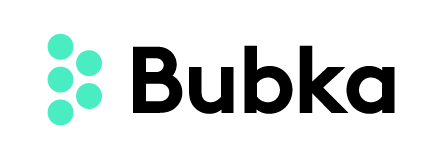The Netherlands Authority for Consumers and Markets (ACM) has been scrutinizing ‘greenwashing‘ and sustainability claims more closely over the last two years, particularly in the fashion and energy industries. To this end, they have issued several guidelines and have taken enforcement action against violators. The Netherlands Advertisement Code Committee (RCC) is responsible for overseeing and enforcing the self-regulatory advertising system in the Netherlands. This system entails that advertisers, agencies, and the media have agreed upon a specific set of rules that they must abide by in their advertising practices.
The rules consist of the Dutch Advertisement Code, which is a comprehensive framework, as well as additional codes that focus on specific areas. Starting from 1 February 2023, a new code concerning sustainability claims will be added to these codes. If you as a company or consumer suspect that a provision of the Dutch Advertisement Code has been breached, you can submit a complaint to the RCC. The RCC will review the complaint and if it is not baseless, it will start an expedited process (typically a matter of weeks) with the company/companies in question. In the past year, there were several cases where people filed complaints and made judgments about sustainability claims and greenwashing practices. For instance, judgments were made in relation to airline carbon offsetting claims and the use of the “on the way to planet proof” certificate by dairy companies. Such complaints and judgments were based on the Dutch Advertisement Code and the (former) Environmental Advertising Code, which has now been substituted by a new code.
The Netherlands, through its ACM and RCC organizations, is taking action against greenwashing to protect consumer rights regarding ESG matters. The UK’s regulatory bodies, the CMA and ASA, are following similar initiatives.
A new advertising code has been implemented for making claims about sustainability.
The Dutch Advertising Code has a new Advertising Code for Sustainability Claims called “Code voor Duurzaamheidsreclame”. This new code replaces the previous Environmental Advertising Code and aims to promote responsible advertising related to sustainability. It came into effect on 1 February 2023 and does not impact any existing regulations or sustainability provisions in other codes of the Dutch Advertising Code. The Code has a clear purpose of adhering to the policy principles established by other regulatory bodies. One such example is the ACM’s ‘Guidelines on Sustainability Claims’.
According to the director of the RCC, it’s vital for consumers to trust the sustainability claims made in advertisements. The number of complaints about false or unclear claims is rising, which is why the RCC needs an up-to-date review system and clear rules for advertisers to follow. The new Code aims to achieve this goal.
Compared to the old code, the new code has several significant changes:
- The Code defines sustainability advertising and sustainability claims. Sustainability advertising refers to ads that feature one or more sustainability claims. Sustainability claims can be classified as either environmental claims or ethical claims. Environmental claims suggest that a product or activity has a positive, reduced, or zero impact on the environment, while ethical claims pertain to social responsibility. The user message explains that a company’s environmental concerns can relate to different aspects such as air, water, soil, ecosystems, biodiversity, and climate. It also mentions that the Code defines ethical claims as statements that imply a company’s adherence to ethical standards in areas like working conditions, animal welfare, and corporate social responsibility.
- The Code has certain rules regarding sustainability claims which companies must follow. These rules prohibit companies from making false or deceptive claims about their products or services. Additionally, companies are required to explicitly state the sustainability advantages of their products or services.
- There are certain regulations in the code regarding the usage of sustainability labels. To elaborate, businesses are prohibited from utilizing labels that haven’t been sanctioned by a reputable organization.
The new sustainability claims code is designed to prevent consumers from being misled by false or ambiguous sustainability claims. It follows guidance already given by the ACM and includes a clear definition of sustainable advertising. It also gives specific guidelines for using sustainability claims and labels.
Failure to comply with Code
If companies do not follow this code, consumers and competitors can challenge them at the RCC. The RCC determines whether a claim is compliant or not in these self-regulatory proceedings. However, the outcome can have a significant impact. If companies do not comply with the RCC’s decision after a negative ruling, the RCC will communicate it to the ACM. As stated in our previous blog post, the ACM has increased its efforts to investigate sustainability claims and has a history of using its legal enforcement tools, including the ability to initiate formal investigations, impose fines, and issue penalty orders. It’s worth noting that a negative ruling from the RCC can be referenced in future civil proceedings and can be used as a basis for seeking damages. The ACM has stated that it will work with consumer authorities in other countries, particularly if those authorities are better suited to enforce against companies that are registered or headquartered in those countries. They have cooperated with other authorities in the past, as seen in their press release about investigating the fashion industry, where they sought assistance from foreign consumer authorities for companies based abroad.


